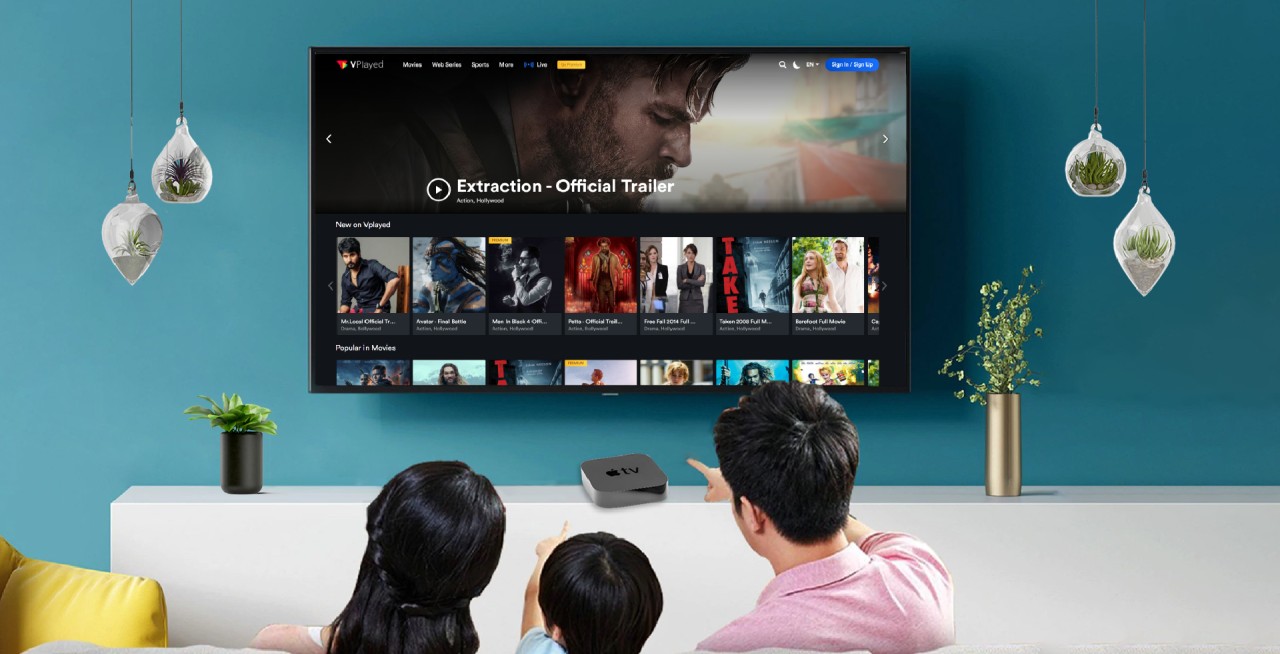Internet Protocol Television (abonnement iptv) has revolutionized the way we consume television, ushering in a new era of on-demand, personalized viewing experiences. Unlike traditional broadcast methods, IPTV delivers television content over the internet, offering viewers unprecedented flexibility and choice. As the digital landscape continues to evolve, IPTV is emerging as a dominant force in the entertainment industry, redefining how we access and engage with media.
What is IPTV?
IPTV stands for Internet Protocol Television, a system where television services are delivered through the internet rather than traditional terrestrial, satellite, or cable television formats. Content is streamed directly to the viewer’s device via an IP network, which can be either managed or unmanaged. This method allows for real-time streaming of live television, as well as video on demand (VOD) services, catch-up TV, and even interactive features such as voting or gaming.
How IPTV Works
At its core, IPTV works by converting traditional broadcast signals into digital data, which is then transmitted over the internet. This data is broken down into small packets, sent over the IP network, and reassembled at the viewer’s end. The use of a set-top box (STB) or a compatible device enables the decryption and display of this content on a television screen.
The process involves several key components:
- Content Acquisition: Television signals are captured and encoded into digital form.
- IP Network: The digital content is delivered via the internet, utilizing various streaming protocols to ensure seamless transmission.
- Middleware: This software component manages the interaction between the user and the content, handling tasks such as channel navigation, VOD services, and interactive features.
- Set-Top Box or IPTV App: This is the final interface that decodes and displays the content on the viewer’s device.
Advantages of IPTV
- On-Demand Content: One of the most significant advantages of IPTV is its ability to provide on-demand content. Viewers can watch their favorite shows, movies, or sports events whenever they choose, without being tied to broadcast schedules.
- Interactive Features: IPTV offers a range of interactive features, including the ability to pause, rewind, or fast-forward live television. It also supports features like multi-screen viewing, electronic program guides (EPGs), and social media integration.
- Personalization: With IPTV, viewers can personalize their viewing experience. Recommendations are tailored based on viewing history, and users can create profiles for different family members, ensuring a customized experience for everyone.
- Cost-Effectiveness: IPTV services are often more cost-effective than traditional cable or satellite packages. Many providers offer flexible subscription models, allowing viewers to pay only for the content they want to watch.
- Global Accessibility: Since IPTV is internet-based, it can be accessed from anywhere in the world, provided there is a stable internet connection. This makes it a popular choice for expatriates and those living in remote areas.
Challenges Facing IPTV
Despite its many advantages, IPTV is not without challenges. The reliance on a stable and high-speed internet connection means that areas with poor internet infrastructure may experience buffering or lower-quality streams. Additionally, as IPTV grows in popularity, it faces regulatory scrutiny, particularly concerning content licensing and intellectual property rights.
Moreover, the proliferation of unauthorized IPTV services has led to concerns about piracy and illegal streaming. These unregulated services often offer access to premium content at a fraction of the cost, undermining legitimate providers and potentially exposing users to legal risks.
The Future of IPTV
The future of IPTV looks promising, with the potential to further disrupt traditional television models. As internet speeds continue to increase and network infrastructure improves, the quality and reliability of IPTV services will only get better. The integration of artificial intelligence (AI) and machine learning will enhance personalization features, making viewing experiences even more tailored to individual preferences.
Additionally, the convergence of IPTV with other digital technologies, such as virtual reality (VR) and augmented reality (AR), could lead to entirely new forms of immersive entertainment. Imagine watching a sports game with a 360-degree view or interacting with your favorite show in real-time.
Conclusion
IPTV represents a significant shift in how we consume television, offering a more flexible, personalized, and interactive viewing experience. As technology continues to advance, IPTV is poised to become the preferred method of television consumption for many around the world. While challenges remain, particularly in terms of regulation and internet infrastructure, the benefits of IPTV make it a compelling option for the future of television.

